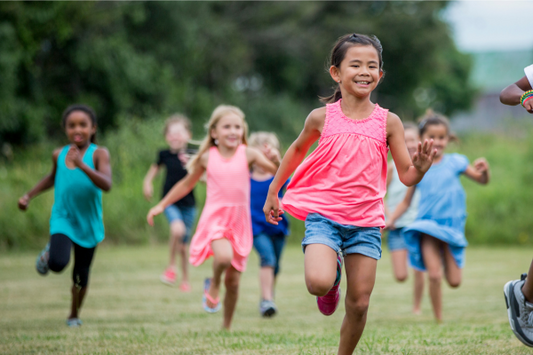“It’s not fair, he always goes first!”, “Muuum! He’s hogging the controls!!”
Does this sound familiar? Here are some tips to help keep the peace at home.
Comments like “It wasn’t me…” or “She started it…”, as well as squabbling, tale telling, screaming and fighting can be all too familiar in many houses. And sibling rivalry isn’t just for siblings – it may involve playmates or cousins (how about Horrid Henry’s cousin ‘Stuck-up Steve’?) – it’s a universal and powerful emotion that kids have to learn to deal with, and one that often worries and exasperates parents.
Sibling rivalry can also traumatise children for life, particularly when there is a power imbalance, perhaps between a younger, vulnerable or more sensitive child.
(It seems that even the royal Princes William and Harry are tearing each other apart!) So how should we try to keep the peace? If we pile in to the fray, all guns blazing, shouting “How many times have I told you… naughty step IMMEDIATELY!”, or just get cross and shout, we may be stoking the fire. And as parents we often make assumptions about who’s to blame as to who has upset their brother or sister… AGAIN.
But there are things you can do to help your children cement a solid, long lasting and rewarding relationship and reduce rumbling, or even fiery resentments. However, some degree of rivalry and friction is entirely normal. In fact, it’s to be expected. Some conflict helps children learn what hurts, what upsets others, and how we make up and make amends. It is part of learning how to co-exist, solve problems, become resilient and make caring relationships.
Yet it’s also very waring for parents. Try to take a deep breath, and think of it as a natural, or even healthy response – young cubs, rehearsing for real life. On the whole, let them to work it out between them, but keep an eye on things so you can intervene before it escalates. Take a slow breath to put you in a better frame of mind – enough to listen to your children and calmly and sensitively bring the tempo right down. Only when you and they are calmer can you take steps to resolve things. By staying calm and reasonable, you are also modelling how to solve arguments. Remember, 80% of your child’s learning is through watching you! So they learn that screaming at their sister is not the solution…
Don’t ask them right in the moment why they are fighting, as it often leads to blame, criticism and recriminations. “Why on EARTH did you do THAT?!” doesn’t usually result in a lightbulb moment of understanding. By quietly listening and acknowledging strong emotions and clarifying what happened on both sides, you can help you understand and resolve the situation.
However, for recurring friction, instead ask yourself WHY?
What do they fight about?
When do they fight? And Who starts it?
How do they react? How do you usually react?
What is your involvement? Are you rewarding them with attention for fighting? Are you favouring one child?
Young children don’t have the necessary tools for healthy disagreement, so parents need to pay some attention to fights and arguments. Apart from preventing injury or bullying, you can help them learn to problem-solve for themselves.
However, as a stop-gap to prevent things escalating, you can reduce confrontation by teaching them to use words with the other child and if necessary to tell them to “STOP…”
In the heat of the moment, separate them until they’re calm. When wound up they won’t be able to take anything in. There are a series of stages to teaching children to deal with conflict, each of which helps to make the child feel understood and involved enough to learn how to manage the situation better next time. They’re then more able to learn to calm themselves down before they hit out and to develop a wider range of options when arguing, such as taking turns or finding something else to do.
7 ways to help siblings get along
- Have ground rules to reduce the ‘triggers’ – reasonable expectations of what behaviour is, and isn’t, acceptable. After putting up new curtains, a parent was horrified to find their young sons swinging on them. They managed to contain their annoyance when they realised they hadn’t actually said to the boys that they must be treated with care. We often make assumptions that children ‘should know better’. So be clear that name calling, hitting, taking favourite things without asking, hogging the TV control, etc. is not acceptable.
- Allow siblings their own space for special things or for peace and quiet when possible.
- Notice and appreciate caring and sharing when it happens (especially if rare!). ‘I was so pleased to see you share your new game with your sister. That was really generous of you.’ We often take their accommodating or kind behaviours for granted and only jump in when they fight.
- Consider a family reward for tolerance, sharing and kindness to each other, for example by adding beans or marbles to a (small) jar and arranging a family treat when full.
- Be proactive in giving your children individual attention directed to their interests and needs and invest in family time enjoying spending time doing things together–a game, a treat or a trip somewhere can build up the stores of goodwill and reduces the battle for your attention. And never compare siblings!
- Treat your child fairly, not equally. “It’s not fair!”. Don’t let them make you feel guilty in specific situations as life’s not always fair. But use your judgement to make sure there’s no consistent or systematic bias towards or against one child.
- Try to model a reasonable response to confrontation in front of your kids as children learn their responses from you. If you slam doors, shout or throw things then they probably will, too.
It’s surprisingly hard not to automatically react by getting upset or cross. Try new approaches. Change takes practice and rehearsal in order to move from being a ‘good idea’ to automatically putting it into practice – learning to drive a car becomes automatic by practising each manoeuvre.
Using problem-solving strategies with your children helps them learn to cope with disputes, to value others’ perspectives, to learn to compromise and negotiate (an important skill covered in detail in the Parenting Matters programme). It is a lasting life skill and one that helps children to become more resilient and able to be assertive without being aggressive. And it eventually helps keep the peace and maintain the relationship!
Parenting Matters is a fun, interactive online programme and community, backed by the latest scientific evidence and developed by parenting experts in the UK. Join our community of parents and access the course at your own pace.





